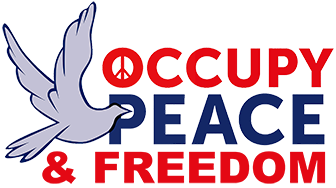By Katrina vanden Heuvel Columnist May 24, 2022 at 7:00 a.m. EDT
It’s time to challenge the orthodox view on the war in Ukraine.
As Russia’s illegal and brutal assault enters its fourth month, the impact on Europe, the Global South and the world is already profound. We are witnessing the emergence of a new political/military world order. Climate action is being sidelined as reliance on fossil fuels increases; food scarcity and other resource demands are pushing prices upward and causing widespread global hunger; and the worldwide refugee crisis — with more international refugees and internally displaced people than at any time since the end of World War II — poses a massive challenge.Sign up for a weekly roundup of thought-provoking ideas and debates
Furthermore, the more protracted the war in Ukraine, the greater the risk of a nuclear accident or incident. And with the Biden administration’s strategy to “weaken” Russia with the scale of weapons shipments, including anti-ship missiles, and revelations of U.S. intelligence assistance to Ukraine, it is clear that the United States and NATO are in a proxy war with Russia.
Shouldn’t the ramifications, perils and multifaceted costs of this proxy war be a central topic of media coverage — as well as informed analysis, discussion and debate? Yet what we have in the media and political establishment is, for the most part, a one-sided, even nonexistent, public discussion and debate. It’s as if we live with what journalist Matt Taibbi has dubbed an “intellectual no-fly zone.”
Those who have departed from the orthodox line on Ukraine are regularly excluded from or marginalized — certainly rarely seen — on big corporate media. The result is that alternative and countervailing views and voices seem nonexistent. Wouldn’t it be healthy to have more diversity of views, history and context rather than “confirmation bias”?


Recent Comments